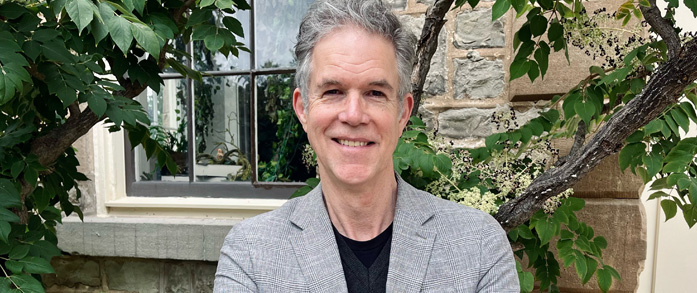
Do you ever play the name games? I’m referring to the cute methods of generating your own alternate name for a specific occupation. For example, you can arrive at your stage name by combining your middle name with the name of the street on which you were born. This one is admittedly an urban-biased system, because if you grew up with only a rural route number or a P.O. Box, you’re going to end up with a stage name like “Richard 32.” This sounds more like a men’s cologne than a stage name.
You can also come up with your porn star name (your middle name, plus the name of your first pet), your super hero name (the color of your shirt plus the object you see directly to your left, no doubt how the Green Lantern came up with his name), your “morning zoo” DJ name, your hip-hop name, your low level bureaucrat name, etc.
Once you start doing this, you can really invent your own formulas. For example, I think you should find your own pro wrestler name by simply taking “the” and adding the largest appliance or piece of equipment you own. This gives you, for example: “The Washing Machine,” “The Circular Saw,” or, if you live on a large farm, “The Combine.” It’s important that a sewing machine not be your largest available appliance.
We started by mentioning stage names, but what about a bluegrass musician’s stage name? You may be thinking we don’t need them. Bill Monroe was just “Bill Monroe.” Lester Flatt was “Lester Flatt.”
Still for some people, people with very ordinary-sounding names, it would be pretty handy. I am, in fact, one of those people, but sadly I realized it after having released too many albums.
The year it occurred to me that I should have acquired a stage name a long time ago was the year a bounty hunter called my wife and said, “ma’am, if he doesn’t respond to us in 24 hours we’re going to find him and arrest him.” This was after several persistent collection agency calls throughout the year. In all cases, they were looking for some other Chris Jones who was delinquent on payments.
Is that really how lazy collections people and bounty hunters are? “Ah hah! Chris Jones in Tennessee. That must be our man. Let’s call him and intimidate his family!”
This was the same year the record label I was with signed a second Chris Jones to their relatively small roster.
There used to be a time when anyone with an ethnic-sounding, difficult to pronounce, or non-anglo-saxon name was encouraged to change it. Noam Pikelny joked in his IBMA keynote address that when his parents named him, they weren’t anticipating his career as a bluegrass banjo player. We’re more open-minded now, and in fact, in the era of the internet, the more unusual your name the better. My former bandmate Ned Luberecki never has trouble nailing down a domain name, and if bill collectors ever come calling for him, it will be because he’s actually behind on his bills.
So, for those of us with the curse of the common name, or maybe a name that just needs a little pizazz, but in a bluegrass musician kind of way, I offer this bluegrass stage name formula:
Take the last name of a bluegrass artist you really admire, and make that your first name, then use the name of the town where you were born for a last name. If the town where you were born has two or more words in it, use the first word (unless it’s New York or Salt Lake City). If your home town just makes for a lousy last name, e.g. Albuquerque, NM or Intercourse, PA, use another town you’ve lived in, if possible.
Some good examples might be Allen Wheeling, Monroe Lynchburg, Stanley Jackson, or Martin Carbondale. Ones that don’t work as well are McReynolds Chicago, Krauss Mobile (sounds like a startup cell phone company), or O’Brien Indianapolis (“Please welcome The Greek/Irish Sensation, O’Brien Indianapolis!”).
I realize this particular formula does not work well for female bluegrass artists. But there’s a pretty quick fix that will take care of this problem in most cases. In parts of Oklahoma, Texas, and other states, there’s a tradition of attaching a woman’s name to the male name of someone in the family, like the father. This is how names like “Bobby Jo,” “Jimmie Sue,” and even “Herschel Ann” (that one came from my stepmother’s Oklahoma family) came about.
So, if you just add a female name in your own family—preferably the name of a grandmother—to your bluegrass artist’s last name, you’ll get something like Reno Ann Roanoke, Stanley Sue Paducah. I think that would look good on any marquee or festival flyer.
As a supplement, you might also consider a descriptive nickname, along the lines of “The Singing Brakeman” or the “The Singing Ranger.”
This one’s easy: just take whatever your main musical role is, and combine it with the title of your last day job, which will give you something like The Banjo-pickin’ Barista , the Mandolin-playing Mortician, or The Singing Forklift Operator.
If you have a white collar or academic type of day job, I’m afraid you’ll be stuck with a nickname like The Fiddlin‘ Accounts Receivable Clerk, or The Dobro-pickin’ Research Assistant.
I’m sorry, but that’s the price you pay for doing that cushy indoor work with no heavy lifting.
For now, this is Stanley Suffern, “The Singing Bagel Baker,” signing off.





